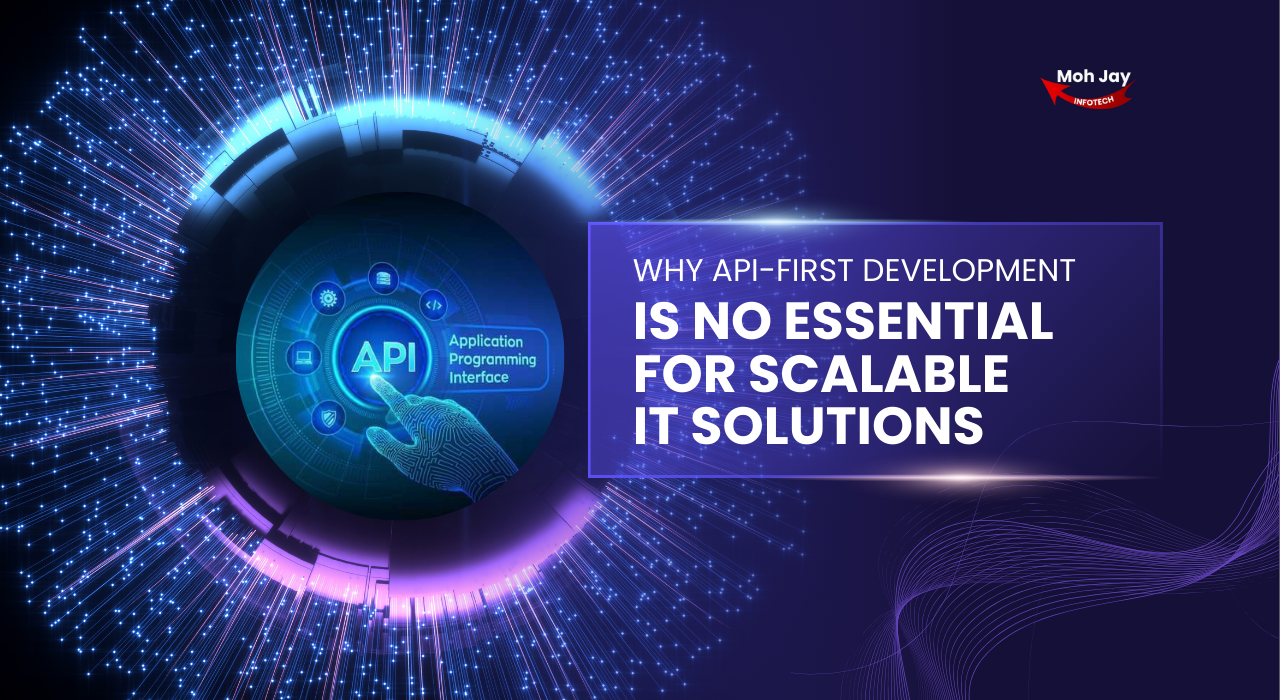With the rapidly changing landscape of contemporary software and business technology, scalability and flexibility are no longer novelties, but essentials. With organizations competing to fulfill constantly changing user demands, embrace new platforms, and incorporate third-party services, a conventional development paradigm simply isn’t cutting it anymore.
Along comes the API-first development method, a revolutionary change in software design, construction, and scaling.
What Is API-First Development?
API-first development is a design approach where APIs are considered as the foundation for software development and not an afterthought. In this process, teams design and create APIs first before coding the actual application code so that all internal and external services communicate correctly and consistently.
In contrast to code-first or UI-first, API-first prioritizes clean, standardized interfaces from the start. This results in improved collaboration, accelerated development, and most significantly scalable IT solutions.
Why the API-First Approach Is Important for Scalability
Today’s digital ecosystems are connected. Mobile apps and web portals, third-party platforms, and IoT devices all require real-time data exchange. Here is why API-first development is now important:
- Allows for Modular and Scalable Architecture
By developing APIs up front, you’re essentially creating modular pieces that can be reused, scaled, or swapped out without compromising the system. Modularity is one of the key principles of scalable IT solutions, particularly in microservices and cloud-native systems.
- Enhances Speed and Efficiency Between Teams
With an established API contract, front-end and back-end developers are able to work concurrently, enormously shortening development time. This API-first strategy encourages collaboration and averts bottlenecks, particularly in large-scale, distributed teams.
- Improves Integration Capabilities
Regardless of whether you’re integrating to third-party services or internal applications, APIs facilitate seamless integration. API-first development guarantees integrations are designed day one, minimizing technical debt and rework in the future.
- Future-Proofs Your Apps
Technology stacks shift. Business requirements change. But well-designed APIs can be consistent across versions. This enables business to innovate without rewriting core pieces repeatedly guaranteeing long-term scalability and flexibility.
Key Benefits of API-First Development
Let’s break down the core benefits of API-first development that make it essential for modern IT solutions:
- Reusability: APIs can be reused across multiple products, platforms, and teams.
- Consistency: Standardized interfaces ensure uniform data exchange and fewer bugs.
- Faster Time-to-Market: Teams can work concurrently and launch faster.
- Better Security: With clear API definitions, implementing standardized security protocols becomes easier.
- Easy Maintenance: Updating or upgrading systems without breaking other parts becomes simpler with decoupled services.
Real-World Example: API-First in Action
Imagine a fintech startup developing a digital banking platform. By going API-first approach, they are able to:
- Publish web and mobile apps simultaneously
- Integrate with third-party payment providers
- Provide APIs to partners for ecosystem development
- Scale backend services separately as user growth increases
Without an API-first mindset, each of these elements would require significant rework and custom integrations, slowing down growth and innovation.
Final Thoughts
In 2025 and beyond, businesses that prioritize agility, scalability, and seamless integration will lead the pack. API-first development is not just a trend it’s a strategic imperative for building scalable IT solutions in today’s connected world.
Whether you’re a startup or an enterprise, adopting the API-first approach will empower your teams, enhance your customer experience, and future-proof your technology stack.
#APIFirst #APIFirstDevelopment #ScalableITSolutions #DigitalTransformation #SoftwareArchitecture #TechInnovation #DevOps #Microservices #ModernDevelopment #BenefitsOfAPI #APIStrategy #TechTrends2025 #EnterpriseIT #MohJayInfotech


